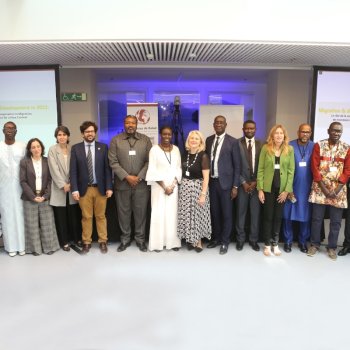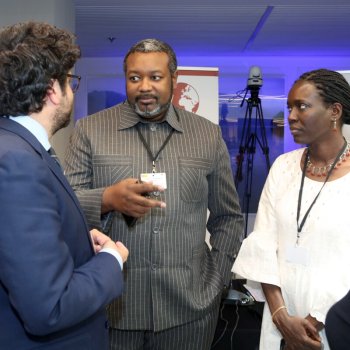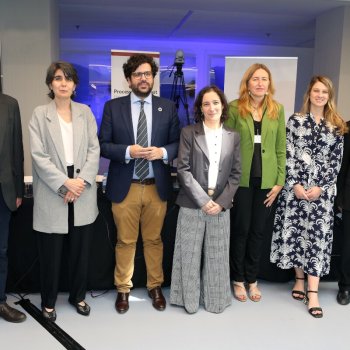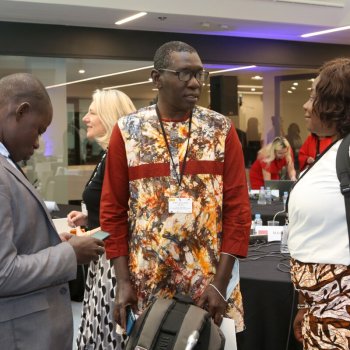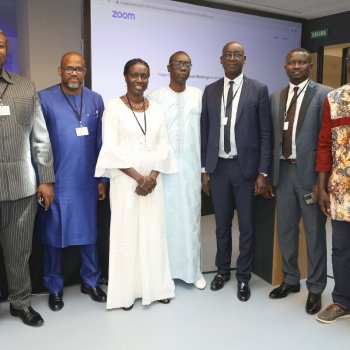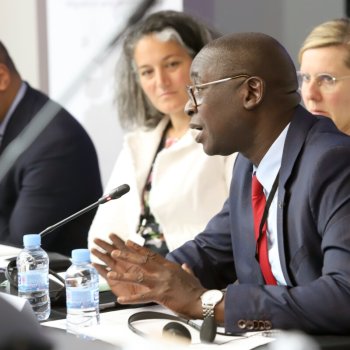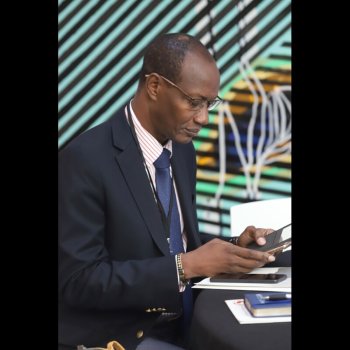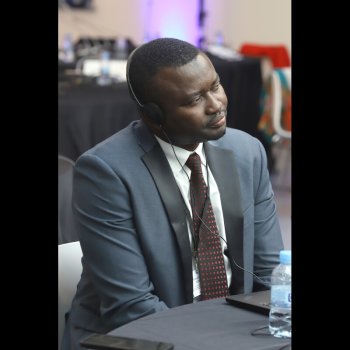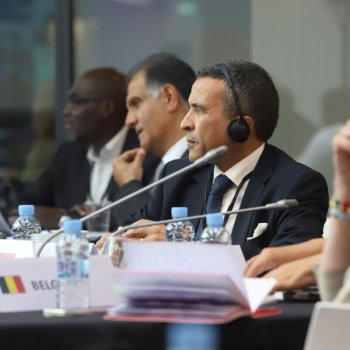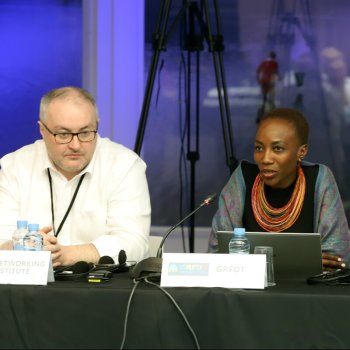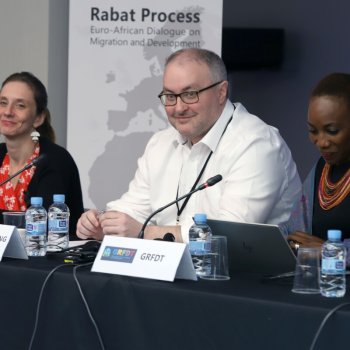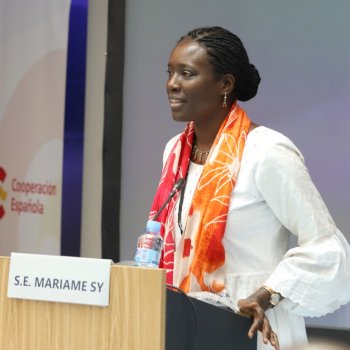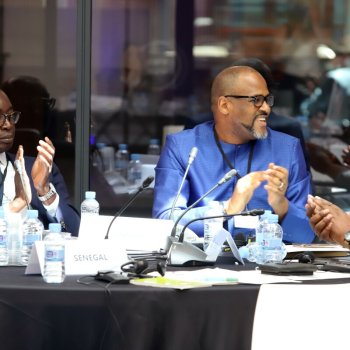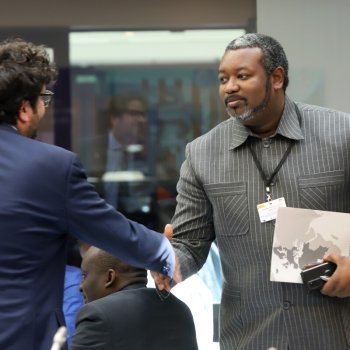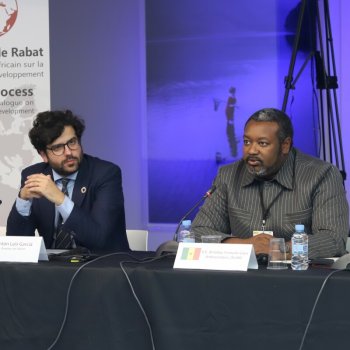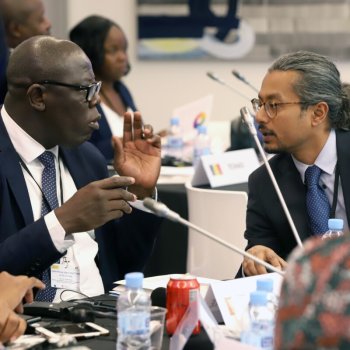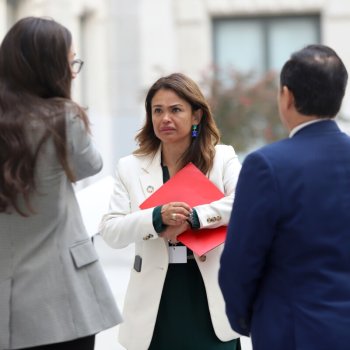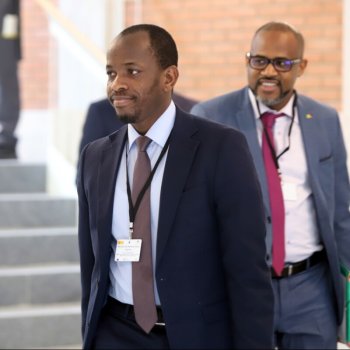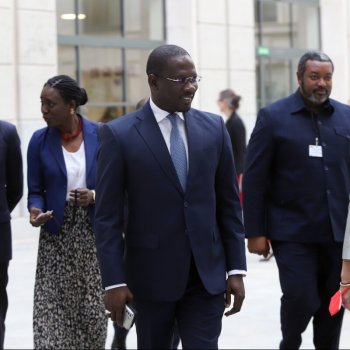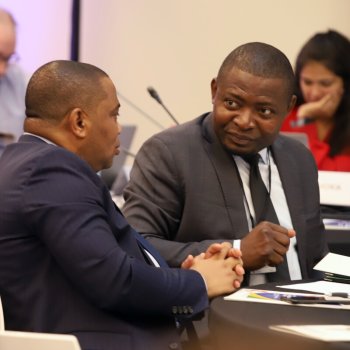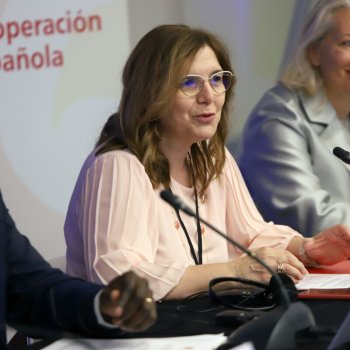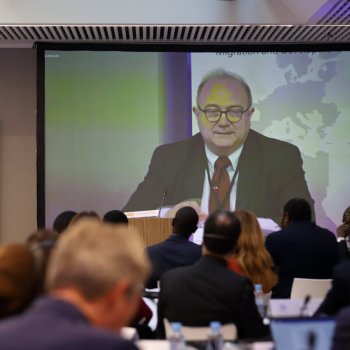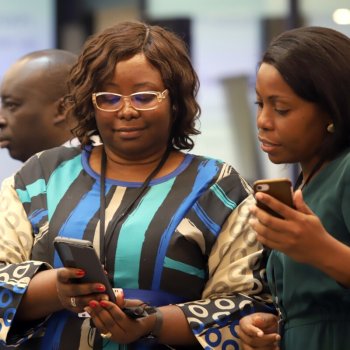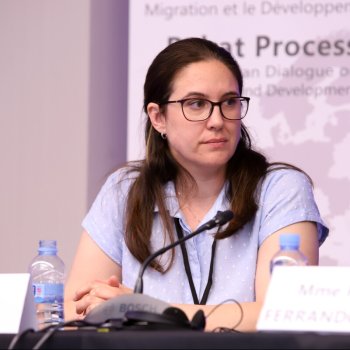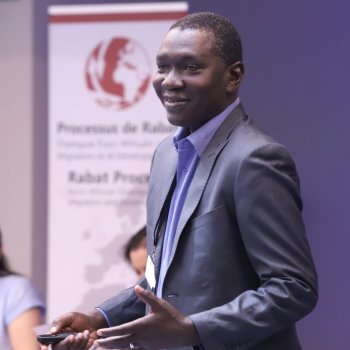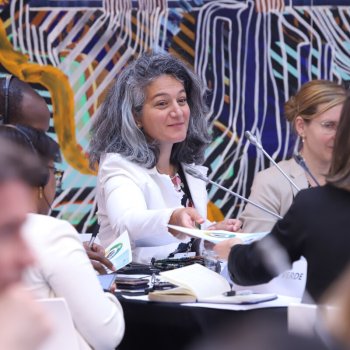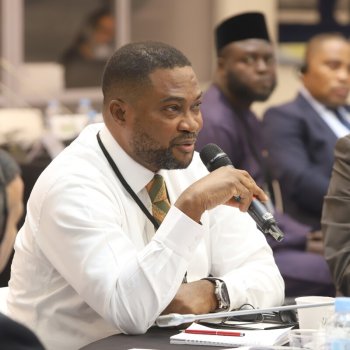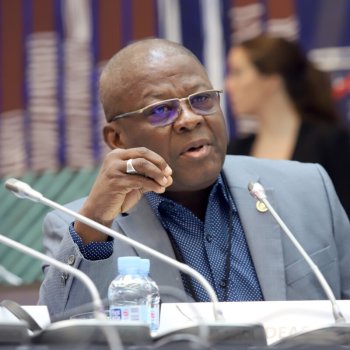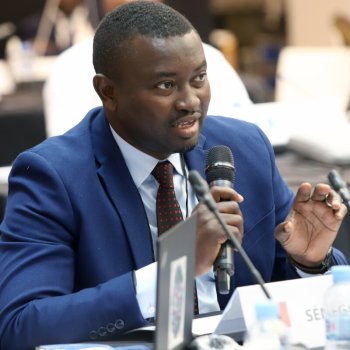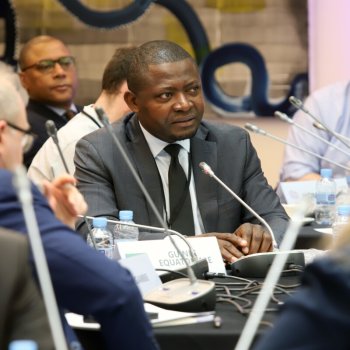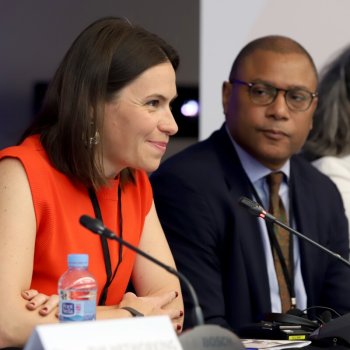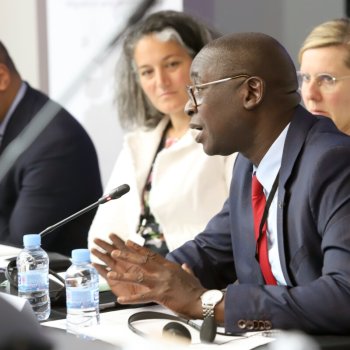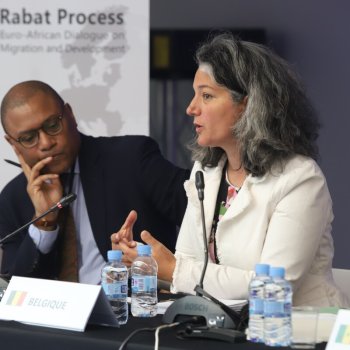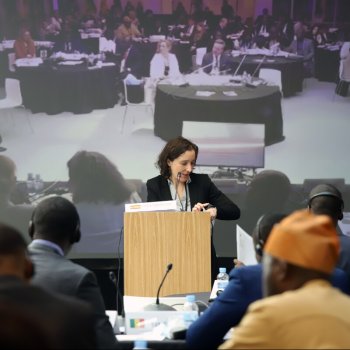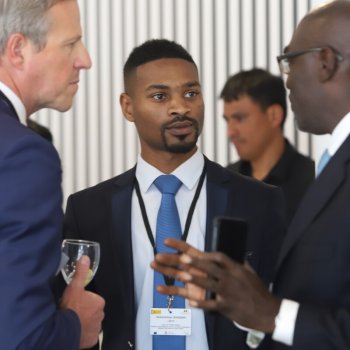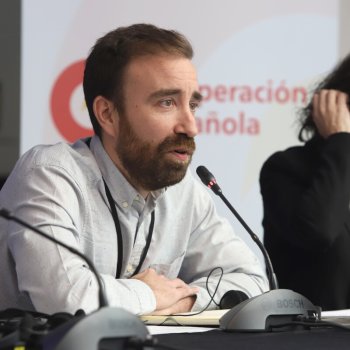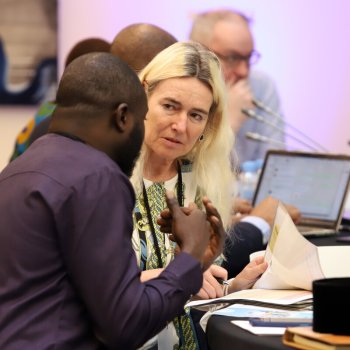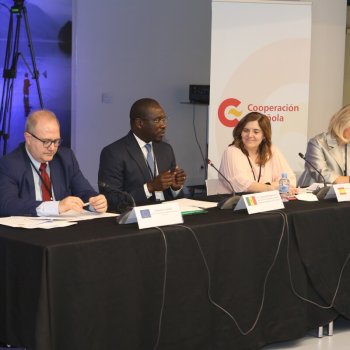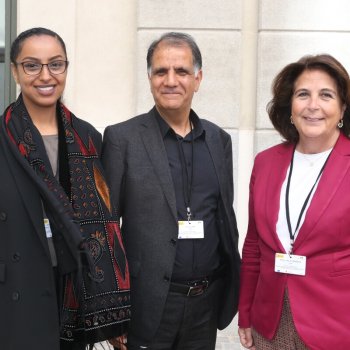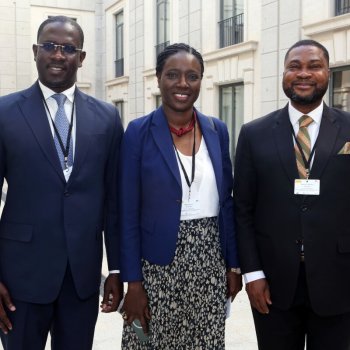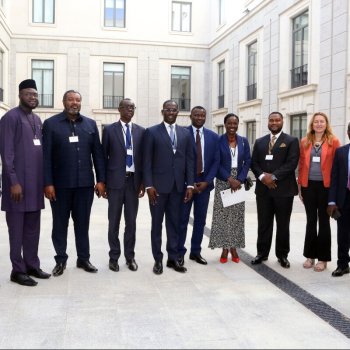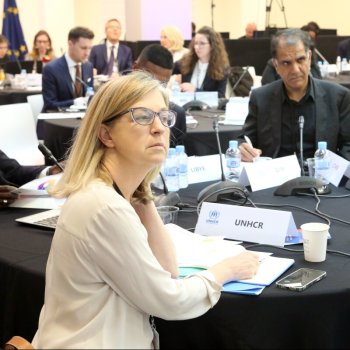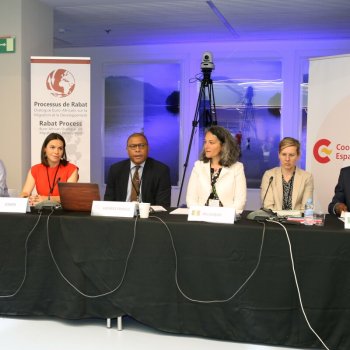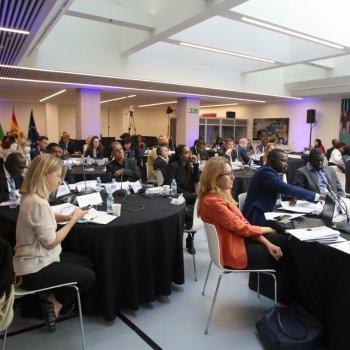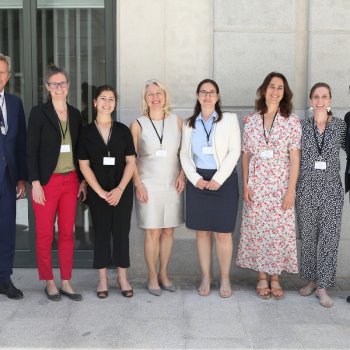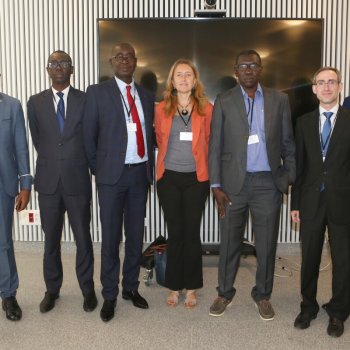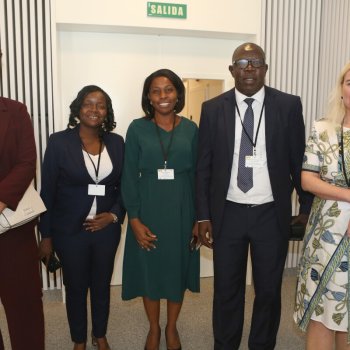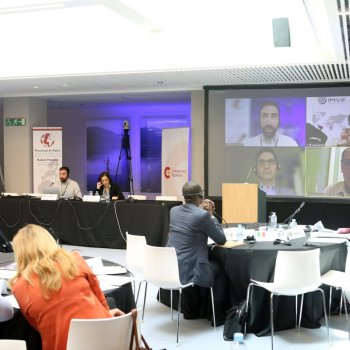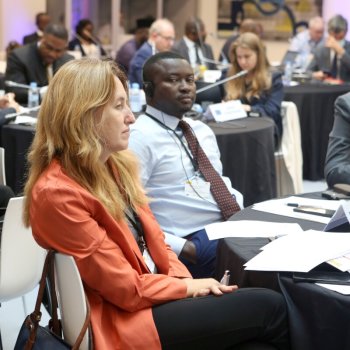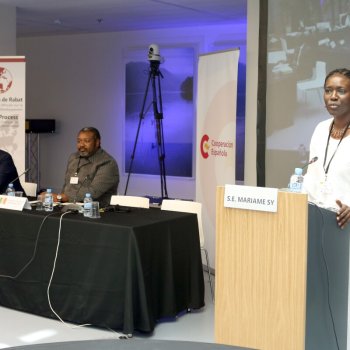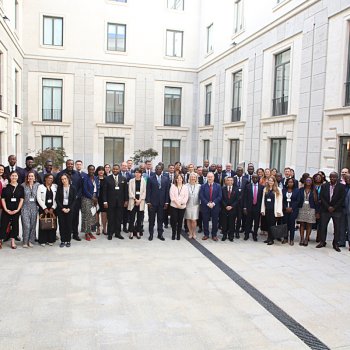Over 100 participants took part in the Rabat Process meeting in Madrid on 12th and 13th May 2022 to discuss recent developments regarding the migration and development nexus, the role of African youth and entrepreneurs, women and diasporas. The meeting was co-chaired by Spain and Senegal and started with a high-level opening ceremony including addresses by the Spanish and Senegalese Secretaries of State in charge of international cooperation and diaspora affairs. The final meeting report is out now and includes the main conclusions and gives an overview of the challenges and opportunities related to migration and development that were identified.
Context: “Maximising the positive impact of regular migration for development” (Domain 1, objective 1)
The meeting echoed the priorities of Domain 1 of the Marrakech Action Plan and built on previous meetings and research in the framework of the Rabat Process. Spain chose migration and development as one of the main focus topics of their Chairmanship of the Rabat Process – an area that is “[…] a priority for Spanish Cooperation in Sub-Saharan Africa, in particular institutional strengthening at the national and regional level in the area of migration management, the fight against its root causes and raising awareness of the risks of irregular migration and how to prevent this, and the fight against human smuggling and trafficking”, said Pilar Cancela Rodriguez, State Secretary for International Cooperation, during her opening address. Co-Chair Senegal emphasised the importance of the topic for Senegal and the development potential of migration. “Migration will continue - so let us try not to prevent it but to understand it better and make migration a lever for development in our respective countries”, said Moïse Diardiégane Sarr, Secretary of State to the Minister of Foreign Affairs and Senegalese Abroad, in charge of Senegalese abroad.
A diverse audience in Madrid and online
The meeting was attended by a diverse audience, including experts from Rabat Process partner countries and their development cooperation agencies, international organisations, civil society and the private sector, represented by young African entrepreneurs. The hybrid character of the meeting allowed participants to contribute to the discussions in Madrid and via video conference, in addition to live tweets that shared insights with a large audience of diaspora practitioners on social media.
In the course of the two meeting days, over 30 speakers shared their individual experiences and expertise during several plenary and panel sessions, focusing specifically on the following aspects:
- The state of the debate on the migration and development nexus;
- The power of diasporas as agents of change;
- Youth: employment opportunities and entrepreneurship (virtual roundtable);
- The role of women as drivers of development and agents of change;
- Assessment and lessons learnt from actions carried out at the Euro-African level.
Conclusions and recommendations
The meeting served as a forum to update the knowledge of Rabat Process partners on migration and development and stimulate reflection on how development cooperation can contribute more effectively to addressing the root causes of migration, while capitalising on the positive effects of migration. The final report includes key points and orientations for the Rabat Process as a dialogue and regional cooperation platform, but also for practitioners and technicians to guide them in implementing actions in this field.
Final report
- Final report (EN), High-level Thematic Meeting “Migration and Development in 2022: the Role of Cooperation in Migration; New Actors for a New Context”, Madrid, 12-13 May 2022
Documents
- Compendium of related publications - Migration and Development in 2022 - Rabat Process Secretariat 2022.
- "Les causes profondes de l'émigration dans la région du Processus de Rabat" - Nelly Robin, Institut de Recherche pour le Développement CEPED Université de Paris (French)
- "Migration and Development: State of the Art" - Jason GAGNON, Migration and Skills Unit, OECD Development Centre
- "Le Fonds pour la migration et le développement: un exemple de coopération entre l'Espagne et la CEDEAO" - Ismaila Dangou, Fonds CEDEAO/Espagne à la Direction de la libre circulation des personnes et des migrations de la Commission de la CEDEAO (French)
- "Les BAOS comme outil du processus de la territorialisation" - Christina Follana / Mamoudou Diallo, Projet Gouvernance, Migration et Développement (French)
- "Les effets du développement sur la migration" - Cheikh Tidiane Wade, Université Assane Seck de Ziguinchor, Sénégal (French)


